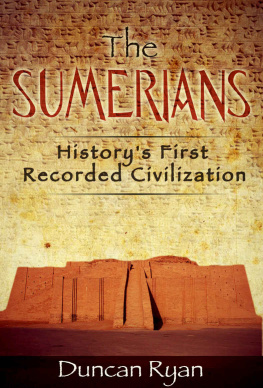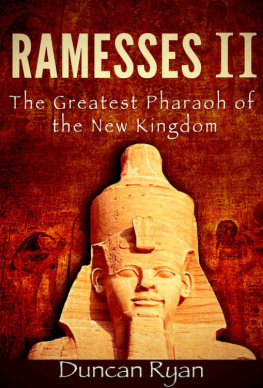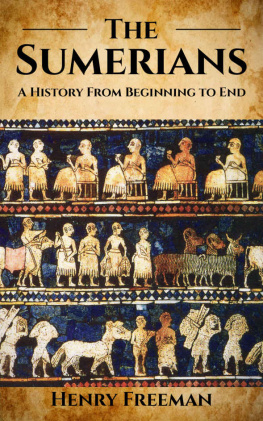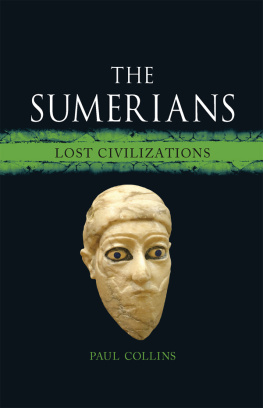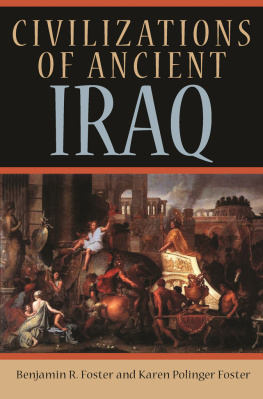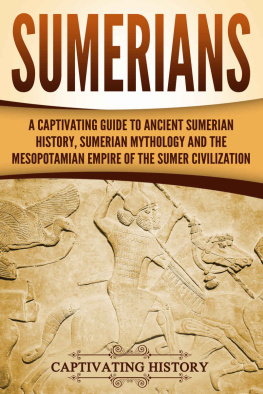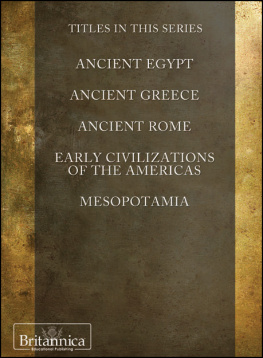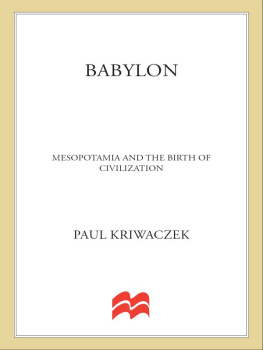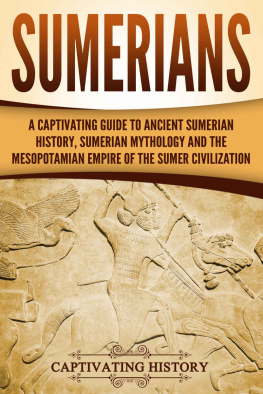Duncan Ryan - The Sumerians: Historys First Recorded Civilization
Here you can read online Duncan Ryan - The Sumerians: Historys First Recorded Civilization full text of the book (entire story) in english for free. Download pdf and epub, get meaning, cover and reviews about this ebook. year: 2016, genre: History. Description of the work, (preface) as well as reviews are available. Best literature library LitArk.com created for fans of good reading and offers a wide selection of genres:
Romance novel
Science fiction
Adventure
Detective
Science
History
Home and family
Prose
Art
Politics
Computer
Non-fiction
Religion
Business
Children
Humor
Choose a favorite category and find really read worthwhile books. Enjoy immersion in the world of imagination, feel the emotions of the characters or learn something new for yourself, make an fascinating discovery.
- Book:The Sumerians: Historys First Recorded Civilization
- Author:
- Genre:
- Year:2016
- Rating:3 / 5
- Favourites:Add to favourites
- Your mark:
The Sumerians: Historys First Recorded Civilization: summary, description and annotation
We offer to read an annotation, description, summary or preface (depends on what the author of the book "The Sumerians: Historys First Recorded Civilization" wrote himself). If you haven't found the necessary information about the book — write in the comments, we will try to find it.
Historys First Recorded Civilization
Duncan Ryan
In the study of history, it is common that we celebrate and attach importance to the great firsts that arise. The ancient Sumerians can be said to be the first true historical civilization, as it was they that invented the written language that would allow historians to look back at accounts of ancient events.
Arising from proto-historic roots in the southernmost region of Mesopotamia, the Sumerians would gradually rise to become the worlds first true civilization, predating even ancient Egypt and the Indus Valley civilization. They would be among the first to organize their communities into larger cities, develop central administration, grow crops using complex methods of irrigation, and by the time their more than 1,000 year domination of Mesopotamia was over, would become the template and inspiration for the great civilizations of Assyria and Babylon that were to follow them.
The Sumerians: Historys First Recorded Civilization is a historical book meant to be informative yet approachable, and requires no background in the study of Near Eastern languages or civilizations. This book conveys to the reader the remarkable history of this earliest of known human civilizations in an enjoyable and easy to comprehend manner. Containing several full-color illustrations, a historical summary of the periods of history that led to the Sumerian era and comprised it, descriptions of key archaeological sites, a section on the historical deciphrement of the Sumerian language, a selected bibliography of key works for those who wish to learn more about the Sumerians, and much, much more, this book endeavors to act as a key piece of groundwork for the history buff interested in learning about the first civilization in recorded history itself.
This work also contains detailed descriptions of the kings and events of the Akkadian empire, which briefly conquered the Sumerian city-states late in the 3rd millennium BCE and would have a massive impact of the history of Sumer. Covering the history of the Sumerians from the earliest days of the pre-dynastic periods to the invasions of the Amorites under Hammurabi, this book takes the reader through the entire history of Sumer and endeavors to give as much historical background and context as possible along the way.
Print Length: 94 pages
Publication Date: January 28, 2016
Language: English
ASIN: B01B8M1CQ4
Duncan Ryan: author's other books
Who wrote The Sumerians: Historys First Recorded Civilization? Find out the surname, the name of the author of the book and a list of all author's works by series.

